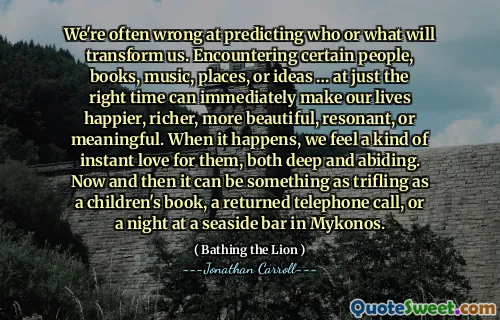When the orbits of these two satellites of ours happened to cross paths, we could be together. Maybe even open our hearts to each other. But that was only for the briefest moment. In the next instant we'd be in absolute solitude. Until we burned up and became nothing.
In Haruki Murakami's "Sputnik Sweetheart," the narrative explores the fleeting nature of human connection through the metaphor of two satellites whose paths cross temporarily. This momentary intersection symbolizes the potential for intimacy and vulnerability between individuals, suggesting that such connections can bring about profound emotional experiences. However, like the satellites, these connections are often brief and can lead to feelings of isolation once they diminish.
The imagery of burning up and becoming nothing further emphasizes the fragility of these relationships. As the characters experience moments of closeness, they are inevitably faced with solitude, highlighting the existential themes present in the story. Murakami invites readers to reflect on the transient nature of love and the longing for meaningful connections in a vast, often lonely universe.

